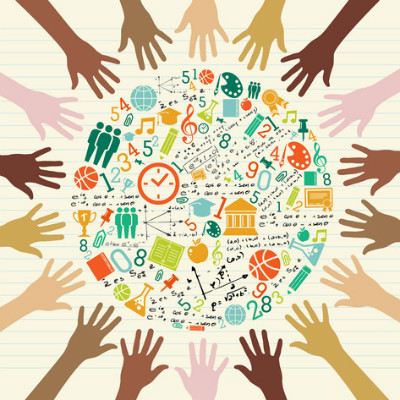In 1987, Patmanathan Pillai launched Life College out of a garage with 16 South African students and two other teachers. Pillai, a 23-year-old teacher and new father in a rapidly changing country, felt more urgency than ever to transform education into an empowering experience for young people, one where students could learn the critical thinking, self-reliance, and life skills they needed to navigate the complex challenges of their time.
The pilot was a failure.

“I didn’t think ambitiously, or arrogantly, enough to look at the system and say it’s not working,” Pillai explained in interview. “I thought I just had to serve the children, and I let them down.” Disappointed in himself, Pillai went on a journey inward, re-emerging 10 years later with an ambitious vision and a new financial model for what is now called LifeCo UnLtd. This sustainable social enterprise serves over 90,000 students and hundreds of teachers within the existing education system, with the goal of awakening within young people the attitudes and awareness they need for academic, entrepreneurial, and lifelong success.
Pillai became an Ashoka Fellow a decade after LifeCo’s relaunch, joining a network of more than 3,200 social entrepreneurs in over 85 countries who are transforming systems to solve local, regional, and global problems. More than 1,000 of these Fellows are working to empower young people to thrive and help others thrive in a world of increasingly volatile, complex, and interconnected personal, social, economic, and environmental challenges. They are seeking to empower everyone to become equipped and inclined to live for the common good (what Ashoka calls “changemaking”).
The idea of empowering the whole person for the whole world is gaining momentum rapidly. But it requires complex change on a mass scale. It requires transforming existing education systems into new “learning ecosystems”—dynamic networks of educators and others who influence the experience of young people, working together to ensure that every young person develops the knowledge, skills, and inclinations that are prerequisites to creating a better world.
This transformation requires that parents, teachers, health workers, employers, media influencers, technologists, and others commit explicitly to this shared purpose, to organize better, and to work together systemically in building new ecosystems. These ecosystems will need to continuously adapt to the changing needs of every young person and to the ever-shifting demands of the world they live in. Communication and collaboration, and the flow of innovations, ideas, and information, will need to be central. Participation and decision-making will need to be open, inclusive, and widely distributed.
Transforming education systems in this way must begin with us. We cannot create learning ecosystems if we are not modeling them ourselves. That is why Ashoka’s approach to change involves organizing communities of Change Leaders into self-led teams that, like the learning ecosystems we want to create, plan systemically, communicate their progress, learn and improve together, and distribute leadership of system change widely.
We are currently creating teams of Change Leaders around the world who are working to effect a wide range of critical transformations, all of which will align to the common purpose of equipping and inclining young people to create a better world. Some of these teams include Change Leaders in schools around the world that are striving—often against the prevailing system—to provide young people new types of learning experiences. To date, we have invited nearly 300 Changemaker Schools into our global community, including public, private, and charter schools; in rural, urban, suburban contexts; and with a wide range of student demographics. These schools—and their Change Leaders—are creating networks of students, parents, teachers, policymakers, union leaders, business people, and community leaders with a primary focus on creating positive change in the world.
Take, for example, the Inspired Teaching School, a public charter school in Washington, D.C., that serves a diverse student body and demonstrates the work of its Center for Inspired Teaching. Founded by Ashoka Fellow Aleta Margolis, Inspired Teaching trains teachers to be “instigators of thought” who ensure that all students achieve their potential as accomplished learners, thoughtful citizens, and imaginative and inquisitive problem-solvers through a demanding, inquiry-based curriculum. Once teachers receive their certification after a year of training at the Inspired Teaching School, they move on to other schools across the district to apply what they have learned. The Center’s goal: to create a critical mass of Change Leaders in the teaching profession.
We are also working with Change Leaders beyond our Fellows and school teams. With Change Leaders from ASCD and Education International, for example, we are helping to organize the Global Teacher and Educators Network (TEN Global), which aims to train and support teachers and out-of-school educators to empower young people. With the Brookings Institution, we are creating a directory of innovations that Change Leaders can use to spread good practice. And we are creating learning programs with some of our Changemaker Campuses to deepen and distribute the capacity for change leadership.
At the heart of each of these projects is the idea of recognizing ourselves as part of the system and modeling the creative, adaptive, and collaborative ecosystems we wish to see. As Pillai said of his own experience, “We must go inward to make change outwardly.”
Support SSIR’s coverage of cross-sector solutions to global challenges.
Help us further the reach of innovative ideas. Donate today.
Read more stories by Ross Hall & Valentina Raman.

